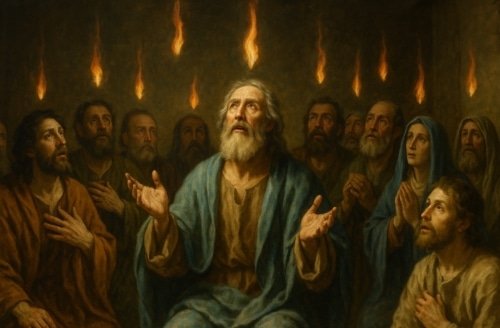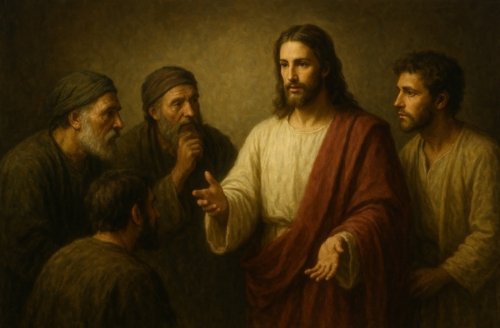

The Festival of Weeks, also known as Shavuot, was one of the three annual pilgrimage festivals observed by the Jews. It is celebrated 50 days after Passover and is often called Pentecost (Greek for “fiftieth”). As Christians, we celebrate Pentecost, not as a harvest festival, but in remembrance of the promised outpouring of the Holy Spirit.
As Luke records this event in the second chapter of Acts, he alludes to several Old Testament events. This article examines one of them. Subsequent articles will look at others.
Then the cloud covered the tent of meeting, and the glory of the LORD filled the tabernacle. Moses could not enter the tent of meeting because the cloud had settled on it, and the glory of the LORD filled the tabernacle.
As soon as Solomon finished his prayer, fire came down from heaven and consumed the burnt offering and the sacrifices, and the glory of the LORD filled the temple. And the priests could not enter the house of the LORD, because the glory of the LORD filled the LORD’S house.
When the day of Pentecost arrived, they were all together in one place. And suddenly there came from heaven a sound like a mighty rushing wind, and it filled the entire house where they were sitting. And divided tongues as of fire appeared to them and rested on each one of them. And they were all filled with the Holy Spirit and began to speak in other tongues as the Spirit gave them utterance.
At the dedication of the Tabernacle at Mt. Sinai, the glory of God filled the tent. And Moses could not enter it. The same thing happened when Solomon’s Temple was dedicated. The glory of God filled the temple, and the priests could not enter.
At Pentecost, something very similar happened, with a major exception. A mighty wind filled the house where the disciples were staying. Tongues of fire appeared and rested on each of them. And they were filled with the Holy Spirit. Just as the glory of God had filled the Tabernacle and Solomon’s Temple at their dedication, even so the glory of God filled the disciples at Pentecost.
The Tabernacle and Temple both represented God’s dwelling place on earth. It is where he would meet with the people. And it was a holy place. But at Pentecost, God made his dwelling within the hearts of his people. Wherever they were, he was also. And they were/are a holy people.
The major exception? When God’s glory filled the Tabernacle and the Temple, no one could enter. When God’s glory filled his temple at Pentecost, it was a temple composed of his people. No longer were we excluded from God’s presence. We are now his temple on earth (Eph. 2:19-22, 1 Cor. 3:16).
Related Posts
The post Filling the Temple – Acts 2:1-4 appeared first on A Clay Jar.


